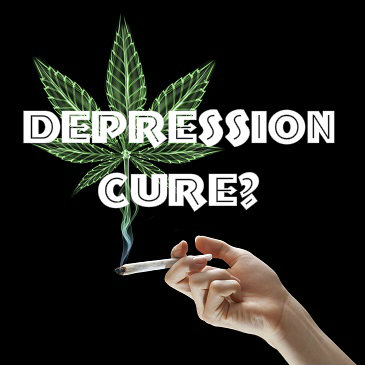Veterans Believe Marijuana Will Relieve Depression
Doctors and public health officials know that people who use marijuana or other forms of cannabis may be affected by symptoms of depression more often than people who don’t use cannabis. People affected by depression may get involved in cannabis use because they believe the drug will make them feel better. However, they may also get involved because they knowingly or unknowingly believe that cannabis use will reinforce their dysfunctional state of mind. In a study published in March/April 2014 in the Journal of Addiction Medicine, a team of American researchers investigated whether positive or negative cannabis-related expectations best explain use of the drug in people with depression symptoms.
Depression And Treatment
 Current evidence indicates that depression is not directly related to increased chances of involvement in cannabis use. Instead, for a number of reasons—including genetic predisposition and exposure to certain environmental factors—people who receive a depression diagnosis are statistically more likely to use marijuana or some other form of cannabis than people who don’t receive such a diagnosis. In some cases, individuals already impacted by the effects of depression may turn to marijuana in an attempt to ease the strain of their mental health symptoms. In other cases, habitual cannabis users may undergo personality changes that feature depression-like effects or actual diagnosable depression symptoms. People who self-medicate their depression symptoms with marijuana or other forms of cannabis sometimes experience a temporary improvement of those symptoms; however, in the long run, this type of drug use can easily worsen existing cases of depression and leave affected individuals with a significant decline in their mental/emotional well-being.
Current evidence indicates that depression is not directly related to increased chances of involvement in cannabis use. Instead, for a number of reasons—including genetic predisposition and exposure to certain environmental factors—people who receive a depression diagnosis are statistically more likely to use marijuana or some other form of cannabis than people who don’t receive such a diagnosis. In some cases, individuals already impacted by the effects of depression may turn to marijuana in an attempt to ease the strain of their mental health symptoms. In other cases, habitual cannabis users may undergo personality changes that feature depression-like effects or actual diagnosable depression symptoms. People who self-medicate their depression symptoms with marijuana or other forms of cannabis sometimes experience a temporary improvement of those symptoms; however, in the long run, this type of drug use can easily worsen existing cases of depression and leave affected individuals with a significant decline in their mental/emotional well-being.
Drug Use Expectations
All people who drink or take drugs have expectations about the effects likely to stem from their substance use. Some of these expectations are “positive,” meaning that users believe they will feel better or otherwise gain a benefit from their intake of a given substance. Other expectations are “negative” and focus on the harms associated with the use of alcohol or drugs. As a rule, a person’s expectations influence his or her likelihood of getting involved in substance use. In real-world terms, this means that people who expect positive or beneficial results from drugs or alcohol have a higher chance of participating in substance use than people who expect negative or harmful results. In addition, positive or negative expectations of the impact of substance use can alter the ongoing experience of drug- or alcohol-related effects in active users.
Expectations In Depressed Individuals
In the study published in the Journal of Addiction Medicine, the U.S. research team used a test called the Marijuana Effect Expectancies Questionnaire (MEEQ) to assess the positive and negative expectations toward cannabis use in a group of 100 military veterans diagnosed with cannabis dependence (now known as one component of cannabis use disorder). These study participants also took another test, called the Inventory of Depression and Anxiety Symptoms (IDAS), designed in part to identify the presence of potentially diagnosable depression. In addition, all of the participants submitted information on the amount of cannabis they had consumed in the three-month period prior to the beginning of the study.
The researchers used a complex form of analysis to compare the results of each participant’s MEEQ and depression tests, and then used this comparison to help determine whether depressed cannabis users have positive or negative expectations toward intake of the drug. After completing their analysis, they concluded that cannabis use and depression are indirectly linked through positive expectations that depressed individuals hold regarding cannabis use. They did not find the same link between depression and negative expectations about cannabis use. The researchers found that the indirect link between depression and cannabis use is specifically related to a depression symptom called dysphoria, which revolves around an unusual state of unease, malaise or discomfort.
Researchers use the term indirect cause to describe contributing factors that help bring about a situation or condition, but don’t entirely account for that situation or condition like a direct cause. This means that, according to the conclusions made by the authors of the study published in the Journal of Addiction Medicine, positive expectations about the effects of cannabis help partially explain why depressed people use the drug, but don’t entirely explain why. Based on their findings, the authors believe that further examination of the impact of dysphoric depression symptoms may help broaden current understanding of why military veterans, in particular, begin using marijuana or other forms of cannabis.



